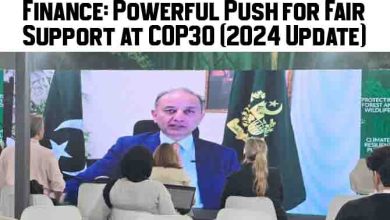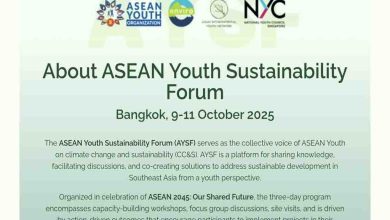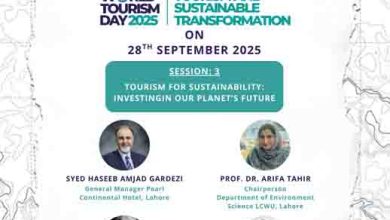Pakistan-Rwanda Green Partnership: A Bold Step Towards Climate Collaboration in 2025
Pakistan seeks green partnership with Rwanda to advance climate change goals, boost exports, and collaborate on eco-friendly technologies.
Pakistan seeks green partnership with Rwanda to advance environmental cooperation, said Dr. Shazra Mansab Kharal, Pakistan’s Minister of State for Climate Change, during a diplomatic meeting in Islamabad with Rwanda’s Foreign Minister, Olivier J.P. Nduhungirehe.
This bilateral discussion marks a pivotal moment as both nations pledge to strengthen ties through eco-diplomacy, cultural exchange, and sustainable development.
High-Level Meeting Highlights
Held in Islamabad on April 22, the meeting showcased a mutual interest in forging a green alliance. Dr. Mansab expressed Pakistan’s eagerness to explore collaborative green projects with Rwanda, underlining the importance of international partnerships in addressing climate change.
“Environmental protection is not just a government priority but a global one,” remarked Dr. Mansab.
In response, Rwanda’s Foreign Minister commended Pakistan’s 10 Billion Tree Tsunami initiative, and elaborated on Kigali’s journey toward becoming a carbon-neutral city.
Pakistan’s Green Aspirations
Pakistan is positioning itself as a proactive player in the climate arena. Dr. Shazra Mansab Kharal emphasized her ministry’s goals of:
-
Enhancing climate change legislation
-
Promoting sustainable development projects like Recharge Pakistan
-
Reducing plastic usage nationwide
-
Seeking investments in green technology and renewable energy
Dr. Mansab highlighted that Pakistan seeks green partnership with Rwanda not only to address climate challenges but also to expand green economic zones and eco-tourism.
Rwanda’s Environmental Achievements
Rwanda stands as a model in green innovation. Since 2008, it has maintained one of the world’s most stringent bans on plastic bags, and its capital Kigali is lauded globally for cleanliness and sustainability.
The Rwandan government continues to invest in:
-
Electric public transportation
-
Smart green infrastructure
-
Reforestation and biodiversity protection
“Pakistan deeply respects Rwanda’s green policies. There’s so much we can learn from them,” Dr. Mansab noted.
Bilateral Trade and Export Opportunities
The conversation wasn’t limited to climate collaboration. Dr. Mansab also spotlighted opportunities to grow Pakistan’s exports to Rwanda, including:
-
Surgical instruments
-
Pharmaceutical products
-
FIFA-approved footballs from Sialkot
These export avenues support Pakistan’s economic interests while embedding sustainability into international trade.
Recharge Pakistan & Climate Justice
A highlight of the meeting was Pakistan’s Recharge Pakistan project — a climate-resilient water management plan designed to mitigate floods, recharge groundwater, and restore ecosystems.
Dr. Mansab emphasized that Pakistan is investing in:
-
Water conservation systems
-
Renewable energy solutions
-
Climate-resilient agriculture
She also addressed climate justice, stating that despite resistance from certain industries, particularly regarding plastic bans, Pakistan is determined to move forward with responsible climate action.
Global Cooperation and Climate Governance
The leaders agreed that climate change demands global solidarity, technical cooperation, and multilateral action. Pakistan and Rwanda aim to:
-
Share green technology innovations
-
Conduct joint research on biodiversity
-
Explore UN-based green economy frameworks
They both recognized the potential for South-South Cooperation as a vital mechanism to address common climate issues.
📌 Explore more about global green governance at UNEP’s official site.
Internal & External Links for Further Reading
-
Internal Link: Pakistan’s 10 Billion Tree Tsunami Campaign – A Success Story
-
External Link: World Bank Climate Data on Rwanda
-
External Link: UNEP Plastic Ban Impact Study
-
Internal Link: What Is Recharge Pakistan? Learn About Pakistan’s Water Future
Conclusion: A Shared Eco-Future
The meeting between Pakistan and Rwanda’s top diplomats is more than symbolic — it’s a declaration of a new green alliance. As Pakistan seeks green partnership with Rwanda, the world watches with hope that such international cooperation can pave the way for a more sustainable, equitable future.
Their shared vision, backed by practical steps in legislation, trade, and environmental technology, could serve as a model for other developing nations.
Green is the future, and Pakistan and Rwanda are walking the path together.







